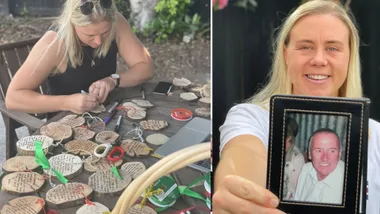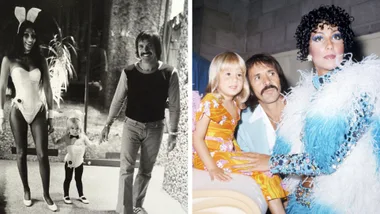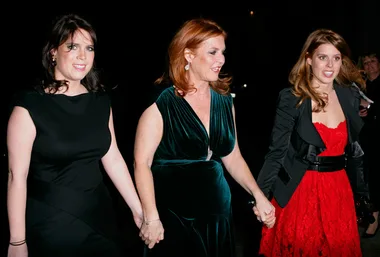Falling pregnant should have been the most fantastic thing that had ever happened to us. I was happily married and we had been planning this baby for two years, however I was still recovering emotionally from a devastating second trimester miscarriage, when we discovered that I was six weeks pregnant.
Because I had only recently gone through the difficult task of telling everyone we had lost our first baby, I told my husband that I was reticent about revealing this pregnancy to family and friends, but inside I knew I was keeping it quiet because I couldn’t let myself celebrate and bond with this baby until I was certain I wasn’t going to lose her like I had lost our first daughter 19 weeks into the pregnancy.
After my 20-week ultrasound scan showed everything was okay, I finally ditched the loose, baggy tops and announced the pregnancy to family and friends, but I still never experienced that elation that I thought was expected when a new mum shared the news of her pregnancy with her family.
When I finally went into labour, I had read every pregnancy and birth book, religiously attended antenatal classes with my wonderful, supportive husband, and spent weeks designing the perfect nursery.
But it still didn’t feel real — I felt pregnant but I didn’t feel like a mum-to-be yet. I kept telling myself it would come, but deep down I was already starting to question whether I was a ‘natural’ mother and if I would be able to bond with this baby when it was born.
After a straightforward 10-hour labour, my beautiful, healthy daughter was born. My first emotion was bewilderment and when the nurses placed her on my chest I almost asked where they had found this baby they were handing to me.
I spent my first night in hospital wondering what I was supposed to do with this tiny being, and accepted her for feeds almost automatically without feeling any connection to her. When we came home, things were no better. I did all the things expected of me — attended mothers group, went to swimming lessons, took her to see great grandparents and accepted help from my mother-in-law who was fantastic providing meals and doing laundry for me.
My husband travelled regularly for work and was often away for days at a time. It was these long nights alone when I started to worry. It started with little things — I imagined dropping my baby on the tiled floor, spilling a hot cup of tea on her while she was in her bouncer or having her fly out of her car seat in an accident.
Then it became more persistent — if she snuffled or gurgled at night I would imagine that she had choked, but was too scared to check on her and discover the worst.
As she started to sleep through the night, I would wake up in the morning feeling sick, certain that she was lying cold and dead in her cot.
The worst thing about these irrational fears was that my overwhelming emotion was relief. I was convinced that if she had died, it was probably for the best that she didn’t have to tolerate being raised by a mother as bad as I was.
I didn’t tell anyone about these fears, and I certainly didn’t identify them as postnatal depression. In my mind, depression involved lying in bed in your dressing gown all day surrounded by piles of tissues.
I was functioning really well, attending mothers’ group, shopping, cooking and socialising. My husband had no idea anything was wrong — even when he was home, all he saw was a busy, active mum taking care of her new baby.
I didn’t share any of my horrible thoughts about my daughter because I was convinced that people would think I was crazy, and I was certain that nobody would understand.
After about six months, the feelings subsided somewhat, and as my daughter got older and became more interactive and responsive, I developed a stronger bond with her. Now that she is three years old, I feel like the most connected, engaged and happy mother imaginable.
I have recently fallen pregnant again, and of course, I’m worried that this problem might repeat itself, so I am preparing myself for the problem to rear its ugly head again. Being more aware of it, I am hoping that I can avoid a relapse, and truly enjoy my first few months with my new baby.
Your say: Have you had a similar experience? Share your stories and thoughts below.
Newsletter conversion description. Get the latest in your inbox.


















































